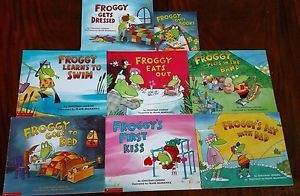MCAS round 2 begins tomorrow.
I am dreading every minute of it.
I hate MCAS for all kids, but I REALLY hate it it for our special ed kids.
(I know, I’ve already written about this.
I’m going to write about it again.
It’s that’s important.)
So I need to talk to you about it.
Dear parent/out of district coordinator/service provider/person across from me at the table in a meeting:
I know what you were going to say before you said it. You looked at last year’s MCAS scores listed in the IEP, and I saw you stiffen and swallow and open your mouth to speak. And I know exactly what you’re going to say, and you do:
“So I’m a little concerned about Student’s MCAS scores. Scores are low/the same as last year/show regression/don’t show improvement/are still in the Warning range.”
We sit and nod, because we see the scores. We aren’t shocked. We aren’t surprised. So you look around at us some more, adjust your papers, and go on.
“I’m very concerned about this. We need to talk about why Student is not improving in their scores.”
This is the part where I sit up straighter, clear my throat, and begin to speak. And even though I want to shout from the rooftops, I calmly say my piece. I tell you that MCAS is a long, exhausting test. I tell you that yes, of course we provide the accommodations given to Student in their IEP. I explain that usually Student puts forth 100% effort on the first part. But there are multiple parts. And it’s exhausting. And so effort falls to the wayside. And also, Student is still in elementary/middle school. And we’ve told Student that on MCAS their job is just to try.”
And then you nod, and agree, and sometimes move on and sometimes ask more questions.
But what I REALLY want to tell you, what I REALLY want to say, is this:
MCAS is a grade-level test. Student cannot read grade-level material or comprehend grade-level material. In fact, Student cannot access grade-level material without significant modifications and language-based teaching, repetition, spiraling, and breaking down concepts. Student has sensory processing difficulties, attentional difficulties, and executive function challenges. All of which make even modified material challenging. That’s why Student is at our school, and why Student is successfully learning at our school.
Yes, we provide Student with their accommodations. But having extra time, being allowed to type their answers, and being given access to spell check are not going to magically make them able to complete grade-level material, are not going to make their attention, anxiety, or executive function issues disappear. Oh, I wish I had that magic wand, but I don’t. And so, of course, their scores are low.
I’m not going to sugar-coat it. You know that I adore this child. SO much. But I adore this child for who they are, and where they are. And where they are is not on grade-level. I am not a professional tennis player, and so I would not be able to win a professional tennis match. I know a few French words but I can’t hold a conversation in French. Despite any modifications I may be granted. But maybe some day I could. Right now your child’s MCAS scores are low. Maybe they’ll improve some day. In fact, I have high hopes that they will. Because I am good at my job, and my colleagues are good at my job, and we work with students to make miracles happen at this place.
But here’s the thing. You are looking at a number, which tells you nothing helpful about Student. And so, please, let me tell you about Student. Student has been raising their hand. Volunteering. Taking learning risks in class. Volunteering to read out loud, even when they stumble over words. Student is sitting with others at lunch time. Having conversations. Accepting help to problem-solve social situations. Student is more positive, happier, and more relaxed. Student is remembering what they learned in previous days. Student is starting to recall strategies. Starting to apply them. Accepting help. Taking feedback. Student is funny, and always makes others laugh. Student is energetic and sweet and puts a smile on everyone’s face. Student said to me the other day, “I don’t hate going to school anymore.”
That’s what you need to know about Student. Student is going to be just fine, and accomplish great things in this life – whatever the right things for them end up being. Maybe Student will go to a 4-year college. Maybe take classes at community college. Maybe do a vocational/transitional program. Maybe Student will work in retail, or with animals, or in a cafeteria. Maybe Student will live at home, or alone, or get married, or live in a group home. We don’t know yet, and MCAS scores don’t give us the answer. And also, Student is still in elementary/middle school. I sure didn’t know the answer to those questions at that age, and I scored proficient on MCAS.
So what you need to know now, is: Student is a brilliant, incredible human being. One that I am privileged to work with. One who will make this world a better place. One who, with your help, and with all of our support, is going to be just fine.
And that’s what you need to know. That’s what we should focus on.
All my best,
Jen


